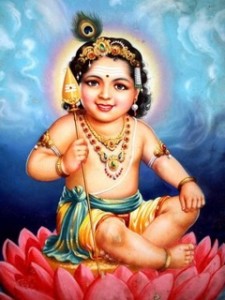What are the qualities that we should strive to possess and what are the qualities that we should avoid? Lord Krishna in Chapter 12 of Bhagavad Gita has explained this in great detail.
अद्वेष्टा सर्वभूतानां मैत्रः करुण एव च ।
निर्ममो निरहंकारः समदुःखसुखः क्षमी ॥१२- १३॥
One who is free from envy, who is friendly and compassionate towards all beings, who does not have the feeling of ‘mine’ & ‘I’, who is equal in happiness and sadness and who is tolerant and forgiving is dear to me.
संतुष्टः सततं योगी यतात्मा दृढनिश्चयः ।
मय्यर्पितमनोबुद्धिर्यो मद्भक्तः स मे प्रियः ॥१२ १४॥
One who is always happy, self-restrained, determined, who has offered his mind and intellect to me, such a devotee is dear to me.
यस्मान्नोद्विजते लोको लोकान्नोद्विजते च यः।
हर्षामर्षभयोद्वेगैर्मुक्तो यः स च मे प्रियः ॥१२- १५॥
The world does not fear him and he in turn does not fear the world, he who is free from feelings of happiness, anger, fear and anxiety, such a person is dear to me.
अनपेक्षः शुचिर्दक्ष उदासीनो गतव्यथः ।
सर्वारम्भपरित्यागी यो मद्भक्तः स मे प्रियः ॥१२- १६॥
One who has no expectations, who is pure internally and externally, who is wise and impartial, who is free from grief, who has renounced the sense of doership in all actions, such a devotee is dear to me.
यो न हृष्यति न द्वेष्टि न शोचति न काङ्क्षति।
शुभाशुभपरित्यागी भक्तिमान्यः स मे प्रियः ॥१२- १७॥
One who does not rejoice, does not hate, does not grieve, does not desire, who has renounced thoughts of auspiciousness or otherwise, who is full of devotion, such a person is dear to me.
समः शत्रौ च मित्रे च तथा मानापमानयोः ।
शीतोष्णसुखदुःखेषु समः सङ्गविवर्जितः ॥१२- १८
One who is equally disposed towards enemies and friends, who is level headed in receiving respect and dis-honour, one who is the same in ‘cold’ and ‘ heat’, happiness and sadness, one who is free from attachment, such a person is dear to me.
तुल्यनिन्दास्तुतिर्मौनी सन्तुष्टो येन केनचित् ।
अनिकेतः स्थिरमतिर्भक्तिमान्मे प्रियो नरः ॥१२- १९॥
One who is balanced in criticism and praise, silent and contemplative, who is happy with what he has, who is unattached to his dwelling place, who is firm minded and full of devotion, such a person is dear to me.
 Sanat Kumara is one of the four sons created from the mind of Lord Brahma the creator. Once while meditating in Brahma Loka (Abode of Lord Brahma), he had a vision of fighting against the Asuras. Being a Bramha Jnani (A Self realised soul) who has transcended all the pair of opposites, he was perplexed and wanted an answer from Lord Brahma. The Lord explained that as a Brahmana in his previous birth, he had witnessed Asuras destroying his ashram and in his anger he wanted to destroy them. That thought is the reason behind this dream. The Lord assured him that there may be a purpose behind this dream since the dream of a Jnani should come true.
Sanat Kumara is one of the four sons created from the mind of Lord Brahma the creator. Once while meditating in Brahma Loka (Abode of Lord Brahma), he had a vision of fighting against the Asuras. Being a Bramha Jnani (A Self realised soul) who has transcended all the pair of opposites, he was perplexed and wanted an answer from Lord Brahma. The Lord explained that as a Brahmana in his previous birth, he had witnessed Asuras destroying his ashram and in his anger he wanted to destroy them. That thought is the reason behind this dream. The Lord assured him that there may be a purpose behind this dream since the dream of a Jnani should come true.